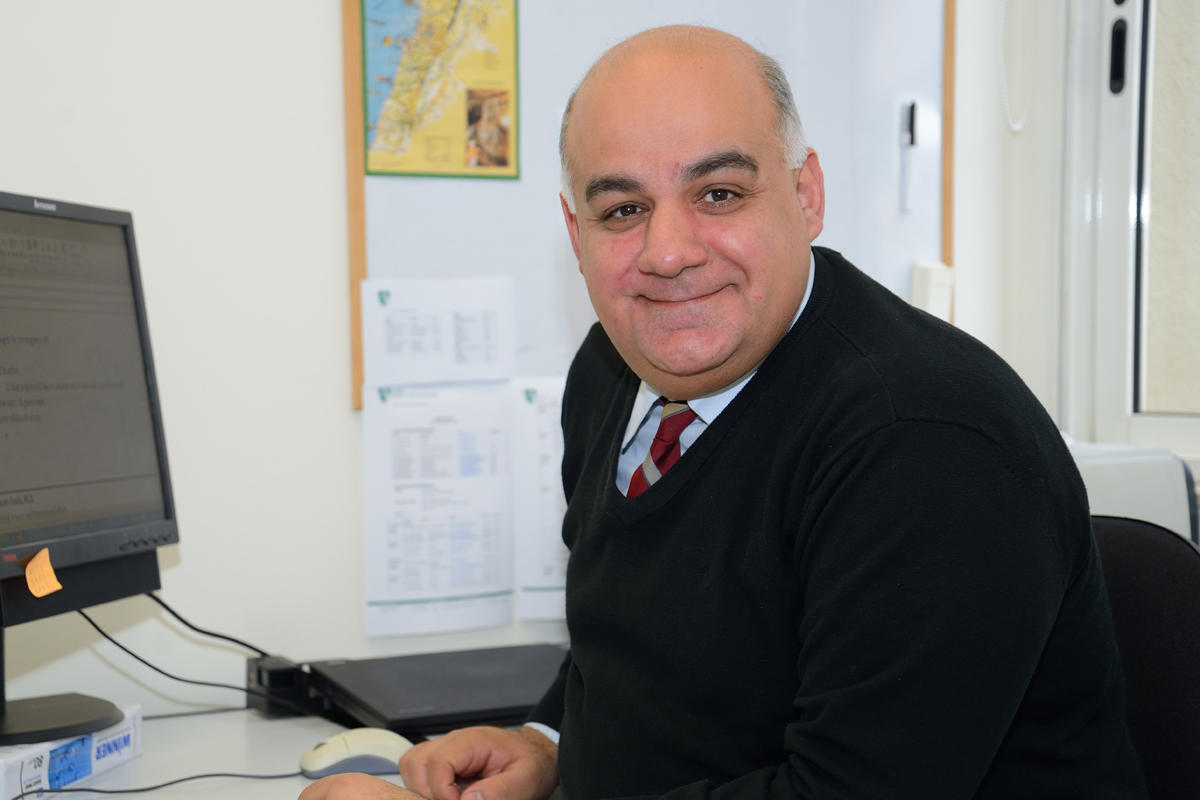Civic Engagement and Youth Involvement: the Future of Peace
Professor Makram Ouaiss talks about ways to achieve peace in a typically unstable region.
On the occasion of International Day of Peace, LAU interviewed Assistant Professor of Political Science and International Affairs Dr. Makram Ouaiss, who specializes in conflict resolution, democratic development, elections and international relations. Ouaiss, who has worked on good-governance and conflict resolution programs in a number of countries including Lebanon, speaks about war, civic engagement, and the prospects for lasting peace in an often-turbulent region.
Considering our region has witnessed wars for decades, are we any closer to developing the mechanisms to resolve conflicts?
Unfortunately not. The disagreement among major powers regarding certain countries in the MENA such as Israel, Syria, Yemen and Iran among others, the weakness of the Arab League, and the lack of alternative Arab initiatives are reasons for the inability to develop such structures.
There is also no effort by the UN to help build such mechanisms in the region. The present mechanisms, which are important, are more specific to certain conflicts and issues, such as the presence of UNIFIL in southern Lebanon.
Does understanding previous conflicts help avoid new ones?
Previous conflicts can help us understand the dynamics, potential paths, and possible points of intervention. However, it is not always possible to avoid new conflicts if the political will, resources, or surrounding circumstances are not conducive to peace – such as foreign interference, economic downturn, environmental catastrophes, mass migration, disease, etc.
The more complex the conflict, the more difficult it becomes to control, for certain variables, and develop reliable mechanisms to predict the course of escalation. However, studying and understanding the history of previous conflicts enhances the ability of people, states and the international community to prevent, act, and monitor such conflicts in the long run.
What in your opinion are the main impediments to peace – international, regional and local – in the Middle East?
Among the factors that represent significant impediments to peace in the MENA are: Unresolved and deeply rooted conflicts; authoritarian regimes that limit citizens’ participation; the “resource curse” and lack of socio-economic development; a weak participatory political culture as a result of colonialism and foreign military presence; extensive external meddling; demographic explosion due to low education levels (especially among women); poor economic development (including redistribution mechanisms); and weak institutional regional frameworks, such as the Arab League, which should play a regulatory and, at times, police role.
In comparison to other conflicts around the world, are the same dynamics at play?
In many ways yes, except that each region has different combinations or presence of the above factors.
Is there a chance to pre-empt conflicts, through a transparent electoral system, accountability, education?
Yes. There are many ways to preempt conflicts, and a few countries in the region have succeeded in doing so. There is a need to build the infrastructure of peace, culturally, politically, diplomatically, militarily and otherwise. There is also a need for stable socio-economic development.
While institutions play a very important role, youth education and civic involvement are essential elements.
As for good governance, it is something we learn through practice. The region’s history in this regard is checkered. Foreign interventions, authoritarian regimes, poor socio-economic development and conflicts have for the most part limited the ability of countries to grow that knowledge and consolidate good practices.
Lebanon has witnessed its share of armed conflict. How are Lebanese youth being empowered to recognize and address signs of imminent conflict?
Sadly, Lebanon’s war generation is failing its youth by not allocating the necessary resources to teach them about the consequences of the 1975-1990 War. Our history continues to be taught up to 1971 with disregard for the war and its atrocities, its political consequences, and devastating lessons.
Initiatives by non-governmental organizations, universities and civil society to involve youth and raise their awareness have been very successful, and at the heart of empowering youth and working through the fear and division left by the sectarian conflict.
Still, such work is insufficient given the number of unresolved issues related to the war, the continued presence of former warlords in the political class who are unwilling to address such issues and the zero-sum thinking that continues to dominate the Lebanese sectarian-based political system.
Nevertheless, youth’s increasing civic engagement and involvement in politics and peace initiatives is likely to bring about gradual change and build the country’s capacity to tackle signs of imminent conflict.
